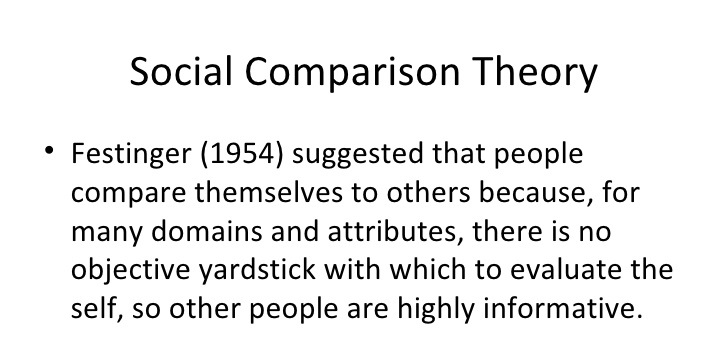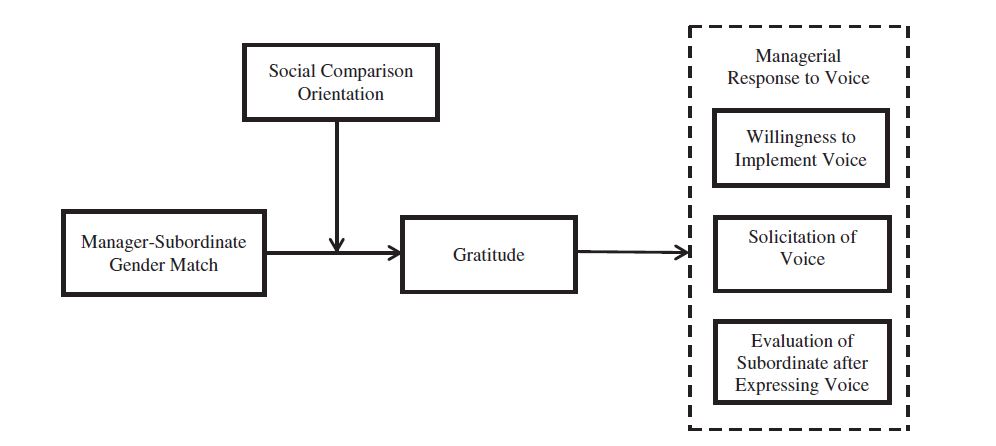Although evidence has mounted that employees speaking up helps managers identify problems and improve organisational effectiveness, voice from subordinates is still not well received by managers.
In this blog I want to focus on how the process of the way we compare ourselves with others (social comparison) and gender can influence speaking-listening up in an organisational context.
Have I mentioned that one of the leverages for me feeling enabled to speak up was because I was the only woman in my wholly-male executive team? The paradox of this is that many women share that it’s because they are the minority that they don’t speak up. Scientific research challenges this mental schema.
It all begins with how people compare themselves to each other.

We all intrinsically compare ourselves to others to evaluate, verify and improve ourselves. Although these comparisons can be self enhancing they can also trigger defensive reactions when an individual’s self defining attribute is challenged. We’ve all experienced how much better we feel when comparing ourselves with ‘worse performing’ others and how challenged we can feel when making comparisons with ‘better performing’ others.
Considering that managers and subordinates interact and influence one another, examining speaking up without considering manager-subordinate gender can undermine the complexity embedded in managerial responses to voice.
Because gender is a salient and vivid attribute that is central to our self concept we generally prefer to compare ourselves with same-gender others. This social comparison process may lead some managers to respond negatively to speaking up if it’s expressed by a same-gender subordinate. As a result, a manager may perceive speaking up as an affront rather than a help. If, however, speaking up is exercised by different-gender subordinates, managers may interpret those actions entirely differently.
The act of Speaking Up invokes the social comparison process in managers because subordinates who speak up with constructive, yet change-oriented ideas can be viewed as challenging the manager’s beliefs in his or her decision making authority and ability to influence their work environment. When same-gender subordinates speak up managers are likely to feel that their self defining responsibilities are being challenged or upstaged. This can result in feeling intimidated from the harm inflicted on their self concept and self esteem. Managers are therefore more likely to reject the suggested input and under evaluate the same-gender subordinate for speaking up.
Watch this 1 minute video from the BBC’s W1A comedy series, where female to female voices spark conflict as opposed to how the men in the same group respond.

As demonstrated in the above picture taken from the research, it was found that gratitude was positively related to managers’ willingness to implement speaking up ,solicitation of speaking up and the evaluation of the subordinate after speaking up
Gratitude is important for speaking-listening up because it’s an empathetic emotion that has a relational component associated with ‘recognition and appreciation of an altruistic gift’, often undertaken with risk. Because gratitude is a social emotion, individuals who are actively engaged to listen up can experience it when they perceive that another person has intentionally given, or attempted to provide valuable information via Speaking Up.
Subordinates who generate gratitude by emphasising the potential benefits of their Speaking Up to the manager may have a better chance of having their input acted upon. Additionally, because individuals are inclined to feel grateful in response to benevolence, organisations should consider creating associated events and reward structures and to offer activities that provide opportunities for employees to help each other. Helping and supporting employees to shift from standing apart in order to advance their careers to joining forces with peers can create collective success. The gratitude from such experiences might carry over to situations when subordinates express opinions and Speak Up to their managers.
Biases triggered by gender are not desirable, especially when managers are making decisions to incorporate subordinates voices. Ideally, managers should objectively consider Speaking Up by their subordinates by evaluating the implementation of suggestions on merit rather than demographic similarity. To facilitate this decision-making process, organisations could consider implementing training initiatives that deter managers from perceiving subordinates as competitors or threats. At the organisational level, an effective initiative could be the establishment of committees composed of diverse members who evaluate key suggestions and ideas instead of relying on a single manager’s judgement.
Training for Courageous Conversations closes these gaps and biases to support people to become more adept at addressing challenging situations, using our best thinking, values and support.
I’d love to be of service. Please get in touch.
SpeakOut SpeakUp’s consultancy provides training designed from real-world experience, to complement existing compliance efforts, by helping organisations to calibrate their programs to real-world behaviours and commercial realities.




Leave A Comment